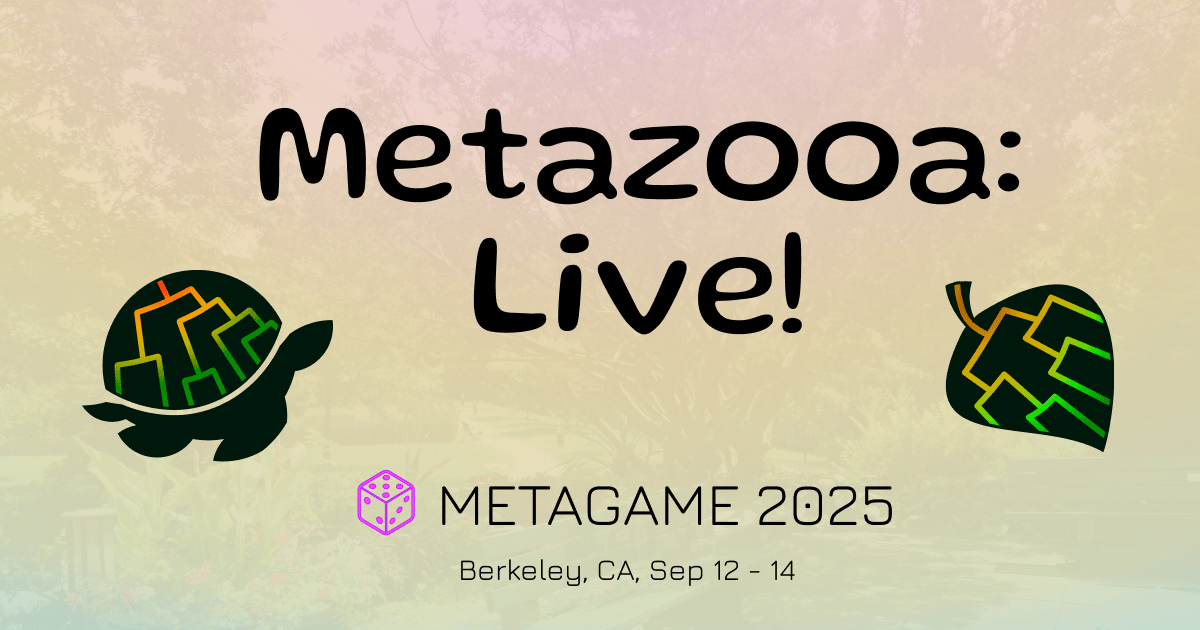- Trainwreck Labs Newsletter
- Posts
- Suriname is home to an extraordinary language
Suriname is home to an extraordinary language
Answers for Globle, Metazooa, Elemingle and more from Aug 18 - Aug 24

Coming to your inbox every Monday with a brand new fun-fact and all the answers to Trainwreck Labs games from the past week.
This week, we have…
A fun fact inspired by Globle
Metazooa: Live is coming back!
Answers to last week's games
Reader survey

Metazooa: Live… is coming back!
This September, the hit feature of Toronto Games Week is going to a new park with new plants, new animals, and new players. Come find the amazing ecological scavenger hunt at Metagame 2025 in Berkely, Califofnia from Sept 12 - 14.
Do you want Metazooa: Live to come to one of your local parks? Let me know!

Suriname is home to an extraordinary language

If the Tower of Babel was were one language was split into many, then Suriname is where many languages become one
Deep within the rainforests of South America, you’ll find a country where you might hear snippets of English, Dutch, Javanese, Sranan Tongo, and… a language that sounds oddly like Shakespeare. That’s because Suriname (Globle answer for August 18) is home to Saramaccan—a creole language developed by escaped enslaved Africans in the 17th and 18th centuries. What makes Saramaccan so extraordinary? It’s a living linguistic time capsule, preserving words and structures from English as it was spoken 300 years ago, peppered with influences from Portuguese, African languages, and Dutch.
Saramaccan emerged in Suriname’s interior, where Maroon communities—descendants of enslaved people who fled plantations—built independent societies. Cut off from colonial cities, these groups forged a language from their captors’ tongues and their own. According to rough estimates, Saramaccan’s vocabulary is about 30% English, 20% Portuguese, and nearly half African, making it one of the world’s most mixed creoles. You’ll find words like “pikin” (child) and “taki” (to talk), echoing both English and West African roots.
Linguists love Saramaccan because it helps unravel how new languages are born from necessity and creativity. Even more amazing: Saramaccan speakers can allegedly still communicate across the Atlantic with counterparts in Sierra Leone and Nigeria using similar words brought over centuries ago. Next time you think of Suriname, picture not just tropical jungles and Dutch colonial towns, but a vibrant linguistic laboratory where history is spoken every day.
Learn more: Britannica
Trivia
What is another interesting feature that Saramaccan has in common with another language? |
Answers to last week's games
Monday, August 18 to Sunday, August 24.

Globle
| Globle: Capitals
|
Chronogram
| Fictogram
|
Metazooa
| Metaflora
|
Linxicon
The following are the shortest paths from last week:
#552 heritage → culture → conflict → solution
#553 tree → branching → crossing → across
#554 either → choose → chosen → kept → preserve
#555 significance → significant → valid → agreement → confirm
#556 along → follows → admits → admit
#557 than → higher → heights → hill
#558 tissue → medicine → profession → licensed → license
#559 Play now!
Elemingle
#208 Calcium
#209 Yttrium
#210 Gold
#211 Zirconium
#212 Tennessine
#213 Neon
#214 Beryllium
#215 Play now!

That’s all for this week. Thanks for reading!
Before you go…
Need a hint, but can’t wait for next week’s newsletter? Join the Trainwreck Labs Discord server!
How would you rate this week's newsletter? |


